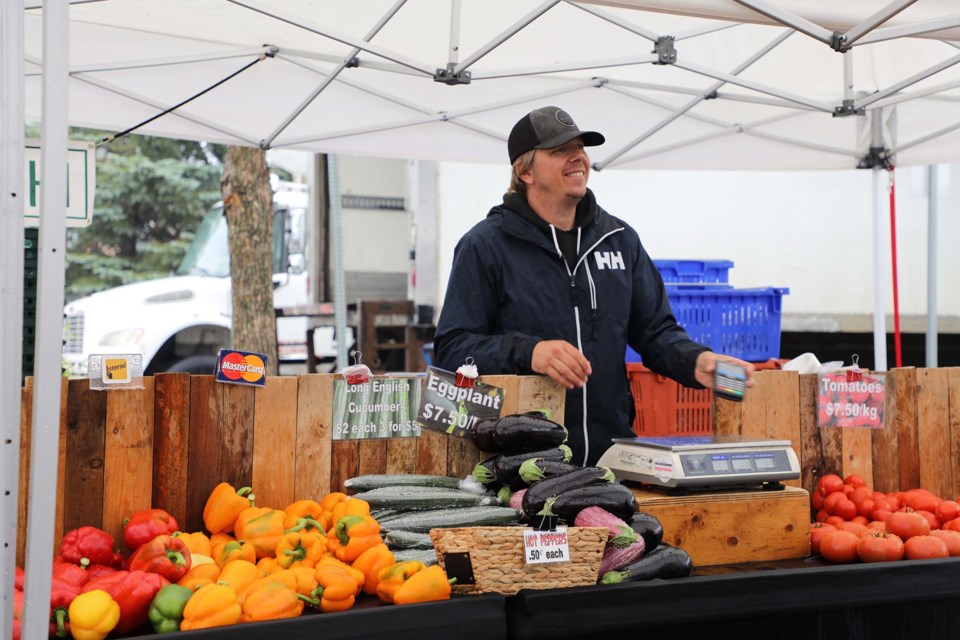Local farmers and producers are keen to get behind the province's newly announced "Made in Alberta" label, which will soon appear on Alberta-made products.
The Alberta Agriculture and Forestry Ministry announced the label on July 10, which itself has not yet been released.
The province will be in consultations with farmers, processors, and consumers over the summer to hammer out details about restrictions and requirements for using it.
“It would be a good opportunity for us local owners and local manufacturers to showcase and say, ‘This is made here in this province.’ It kind of promotes business and employment within Alberta. I think that's awesome,” said Jody Jenkins owner of District Distillery, at St. Albert's farmers' market on Saturday.
Many producers at the market on Saturday said a label would be a great way for local businesses to market themselves to those consumers who want to support local.
Jenkins said he would like to see requirements for use of the label, such as only for products made in Alberta, and only on products that are sourced from Alberta.
“If you can source your materials from Alberta, even better – if possible – not all manufacturers probably can do that. But that would be good as well,” Jenkins said.
Jenkins said the only thing he could see that could go wrong is a label that could potentially trick the consumer into thinking they are buying something they are not.
“When someone's buying (a product), and if they buy a product because it says 'made in Alberta' and if it's actually not … I mean, that's where I could see (the label) wouldn't work,” he explained.
Harrison Fah, a shopper at the market, said he saw something similar in Australia, where he is from.
“I think they have like a symbol of like, it's a yellow kangaroo. So, you know, like, Australian products versus I guess international products,” he said.
Fah said he would likely buy something featuring a localized sticker over something without.
“It's something that I've been definitely trying to work on to do more. Give back to the local economy. Keep the money locally,” he said.
Paul Doef, owner of Lacombe Fresh, said they are always trying to differentiate themselves from places such as the U.S., B.C., Ontario, and Mexico in the grocery store, and this label would help them do exactly that.
“I think that there are people who would see that label and hopefully gravitate toward it. So, I think it's awesome,” said Doef.
Doef does, however, see one issue with the program; people who shop at farmers' markets don’t generally like to see labels.
“Our stuff is basically just loose … we don't see any stickers on our stuff,” he said, adding they likely wouldn’t use the labels at farmers' markets, but it would be an attractive thing for their grocery-store-bound produce.
Alberta had record food manufacturing sales of $15.5 billion last year, according to a press release from the province last week. There are around 28,000 people employed in the food and beverage processing industry – one of the largest employers in the province.
Food sales in farmers' markets and through farm retail have more than doubled since 2008. Direct-to-consumer channel sales hit more than $1.2 billion last year.
Julie Badick-Weisgerber of Crafty Cooks said her business was busier during the pandemic, as more people wanted to support their local producers.
She thinks the labels would be good for businesses that have been struggling through the pandemic, but she said it is tough to say if the label would help her sell more products.
Badick-Weisgerber said she would be more inclined to buy a product with an Alberta label, as supporting local is important to her.
Would she put a "Made in Alberta" label on her soups, preserves, and prepared meals?
“Yeah, why not?”




